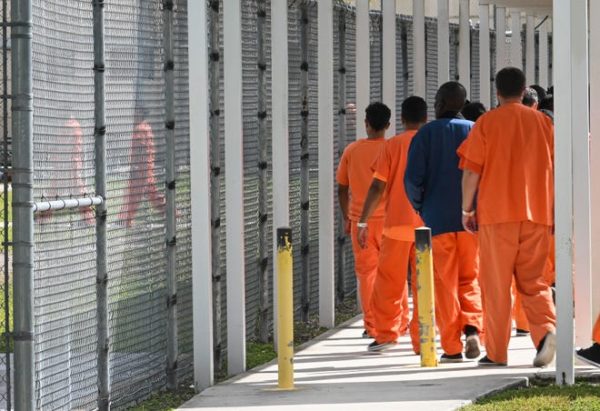
WASHINGTON – The Justice Department on Friday set in motion the mass collection of DNA from detained immigrants by issuing a long-anticipated final rule authorizing genetic sampling from potentially hundreds of thousands of migrants placed into federal custody each year.
The enormous government collection effort, first outlined in October, builds on a pilot program that has been underway in Michigan and Texas since January.Absent a legal challenge, the expanded program would begin in April.
Trump administration officials have cast the effort as a valuable tool to help identify criminal suspects, while civil liberties advocates have denounced the program as an affront to personal privacy.
Under the program, the DNA samples would be transferred by federal immigration authorities to a database managed by the FBI, known as the Combined DNA Index System or CODIS.
Democratic primary:Warren slams ‘bullying’ Sanders supporters as she exits race, says candidates are responsible for followers’ actions
For years, the system has been used by state and local authorities seeking assistance in identifying suspects in violent crimes.
Deputy Attorney General Jeffrey Rosen said Friday the expanded collection program would “help enforce federal law with the use of science.”

But civil liberties advocates have voiced fierce opposition, describing the program as an abuse of government authority.
Vera Eidelman, staff attorney with the ACLU’s Speech Privacy and Technology Project, has characterized the effort as “dehumanizing.”
“This unjustifiable step towards full population surveillance threatens to subvert our foundational values of freedom, autonomy, and presumed innocence,” Eidelman said in November, urging the Trump administration to abandon the plan.
Initial authority for the DNA collection, federal officials have said, is set out in the 2005 DNA Fingerprint Act, which provided for collection from non-citizens in U.S. custody. Immigrant detainees, however, have been exempted since the Obama administration, under an agreement between then-Attorney General Eric Holder and then-DHS Secretary Janet Napolitano.
Trump’s town hall:Trump uses town hall in Joe Biden’s hometown to predict he will be the Democratic nominee
New attention was focused on the detainee exemption in August when a whistle-blower complaint was shared with the White House and Congress, asserting that federal immigration authorities had failed to fully carry out the 2005 law.
In October, Rosen said the rule change represented a “lawful exercise of the attorney general’s authority, provided by Congress, to collect DNA samples from non-United States persons who are properly detained under the authority of the United States.”
The cost of carrying out the collection program, according to previous estimates, stands at about $13 million, a obligation that will largely on the FBI.
On Friday, the Justice Department said that the FBI’s laboratory has the capacity to handle the increased DHS sampling “and its capabilities can be scaled up to meet additional capacity.”
Justice said the FBI will provide DHS with the collection kits, analyze samples, and “ensure that law enforcement agencies use the results in accordance with the FBI’s stringent CODIS privacy requirements.”














